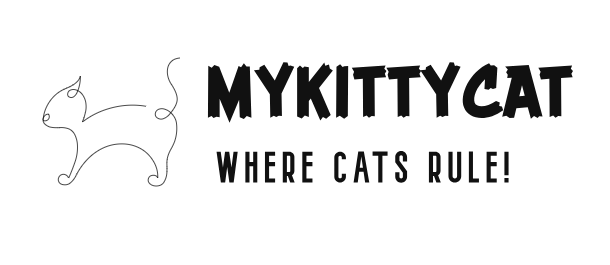Greetings, fellow cat owners! Today, I want to address a common concern among us – cat food allergies. Just like humans, cats can develop allergies to certain foods, causing discomfort and health issues. It’s crucial to be aware of the signs and solutions related to this issue, ensuring our furry friends lead happy and healthy lives.
When it comes to cat food allergies, recognizing the signs is essential. Look out for chronic itching and skin inflammation, which can affect various parts of their body. Keep an eye on gastrointestinal symptoms like vomiting or diarrhea as well – they may also indicate a food allergy. So, if you notice your feline companion experiencing any of these symptoms, it’s time to take action and find a solution.
Diagnosing a food allergy in cats involves an elimination diet trial. This means feeding your cat a specialized diet that does not contain any proteins it has been previously exposed to. If their symptoms improve during the trial and return after reintroducing the old food, it confirms a food allergy diagnosis.
While food allergies in cats cannot be cured, they can be managed through dietary control. The right approach will depend on your cat’s specific needs and any guidance from your veterinarian. With careful management and proper nutrition, you can provide the relief your cat needs to thrive.
Key Takeaways:
- Signs of cat food allergies include chronic itching, skin inflammation, and gastrointestinal symptoms.
- Diagnosing a food allergy in cats involves an elimination diet trial.
- Cat food allergies cannot be cured, but they can be managed through dietary control.
- Consulting with a veterinarian is crucial for diagnosing and managing cat food allergies.
- Patiently adhering to the prescribed diet is key to successfully managing cat food allergies.
Understanding Food Allergies in Cats
A food allergy in cats refers to an adverse immune reaction to a specific protein found in their food. While the mechanism behind food allergies in cats is not fully understood, genetic predisposition and allergies to environmental factors (atopy) play a role. Cats can develop food allergies at any age after three months. Both male and female cats are equally likely to develop food allergies. Common food allergens for cats include beef, fish, chicken, and dairy. Limited research suggests there may be other unidentified allergens as well.
Understanding the risk factors associated with food allergies in cats can help pet owners take preventive measures. Genetic predisposition means that certain cat breeds, such as Siamese and Devon Rex, may be more prone to food allergies. Additionally, if a cat has allergies to environmental factors, such as pollen or dust mites (atopy), they may be more susceptible to developing food allergies as well. It is important for cat owners to be aware of these risk factors and take appropriate steps to minimize the chances of their cats developing food allergies.
| Risk Factors for Food Allergies in Cats: |
|---|
| Genetic predisposition |
| Allergies to environmental factors (atopy) |
| Siamese and Devon Rex cat breeds |
| Exposure to common food allergens |
By understanding what food allergies are and the risk factors associated with them, cat owners can be proactive in managing their cat’s health and well-being. Regular veterinary check-ups and open communication with a veterinarian are crucial in identifying and managing food allergies in cats. Through proper diagnosis and dietary control, cats with food allergies can lead happy and comfortable lives.
Clinical Signs of Food Allergies in Cats
When it comes to food allergies in cats, there are several telltale signs to watch out for. The most common symptom is chronic itching, which can affect various parts of the cat’s body, including the face, ears, belly, groin, armpits, legs, and paws. This incessant itching often leads to overgrooming, causing skin trauma and hair loss. Recurrent skin and ear infections are also frequent among cats with food allergies. It’s essential to note that not all cats with food allergies exhibit digestive signs, but for some, gastrointestinal symptoms such as vomiting, diarrhea, frequent bowel movements, or straining during defecation may be present.
These clinical signs are not only uncomfortable for cats but can also significantly impact their quality of life. The incessant itching may lead to irritability, restlessness, and disrupted sleep patterns. The skin trauma and frequent infections can cause pain and discomfort, potentially leading to behavioral changes and a decrease in overall well-being.
To better understand the clinical signs of food allergies in cats, refer to the table below:
| Symptoms | Description |
|---|---|
| Chronic Itching | Itching that persists throughout the year and affects various body parts, including the face, ears, belly, groin, armpits, legs, and paws. |
| Skin Inflammation | Inflamed and irritated skin, often accompanied by redness, swelling, and the presence of small bumps or blisters. |
| Overgrooming | An excessive grooming behavior that can lead to skin trauma, hair loss, and the formation of open sores or scabs. |
| Recurrent Skin and Ear Infections | Frequent skin and ear infections that may require medical treatment and can cause discomfort for the cat. |
| Gastrointestinal Symptoms | Vomiting, diarrhea, frequent bowel movements, or straining during defecation. |
If your cat exhibits any of these symptoms, it’s crucial to consult with a veterinarian for an accurate diagnosis and appropriate management strategies. They may recommend an elimination diet trial to identify the specific allergenic ingredients and develop a suitable dietary plan to alleviate your cat’s symptoms.
Remember, early detection and proper management of food allergies in cats can greatly improve their quality of life and overall well-being.
Diagnosing Food Allergies in Cats
Diagnosing food allergies in cats can be challenging, but it is crucial for effective management. The most reliable method for diagnosis is an elimination diet trial, which involves feeding the cat a specialized diet that does not contain any proteins it has been previously exposed to. This trial should last at least eight weeks to allow sufficient time for the cat’s immune system to respond.
During the elimination diet trial, the cat’s symptoms should improve if a food allergy is the cause. After the trial period, the old food can be reintroduced to see if the symptoms return, confirming the diagnosis. It’s important to strictly adhere to the prescribed diet during the trial and avoid any other treats or edible products that may contain allergenic proteins.
In some cases, veterinary hydrolyzed protein diets or novel protein diets may be recommended for the elimination trial. Hydrolyzed protein diets have proteins broken down into smaller molecules that are less likely to trigger an allergic response. Novel protein diets use proteins that the cat has not been previously exposed to, reducing the likelihood of an allergic reaction.
Table: Comparison of Diets for Elimination Trials
| Diet Type | Advantages | Considerations |
|---|---|---|
| Veterinary Hydrolyzed Protein Diet | – Highly digestible – Reduced allergenicity | – Can be more expensive – Requires prescription |
| Novel Protein Diet | – Provides new protein sources – May be less expensive | – Limited variety of flavors – Requires careful ingredient selection |
It is important to consult with a veterinarian before starting an elimination diet trial to determine the best approach for your cat. A vet can provide guidance on selecting the most appropriate diet and ensure that the trial is conducted correctly. They can also rule out other possible causes of your cat’s symptoms and provide ongoing support throughout the diagnostic process.
Managing Food Allergies in Cats
When it comes to managing food allergies in cats, dietary control is key. While food allergies cannot be cured, they can be effectively managed to provide relief from symptoms. One approach is to continue the diet used during the elimination trial, which has proven to be successful. However, it’s important to work closely with your veterinarian to ensure the diet is providing all the necessary nutrients for your cat’s well-being. Alternatively, your veterinarian can help you explore different hypoallergenic cat foods that are specifically designed to avoid triggering allergens. These hypoallergenic cat foods may be veterinary diets or carefully selected retail pet foods.
When selecting hypoallergenic cat foods, it’s crucial to read the labels carefully to avoid any cross-contamination. Pay attention to the ingredients and manufacturing processes to ensure the food is safe for your cat with food allergies. Additionally, it’s important to avoid giving your cat treats or other foods that may contain allergenic ingredients. Long-term dietary control is necessary to keep the allergies under control and prevent any potential flare-ups.
Benefits of Managing Cat Food Allergies
Managing food allergies in cats is crucial for their overall well-being. By effectively controlling their diet, you can help alleviate symptoms such as chronic itching, skin infections, and gastrointestinal distress. This will significantly improve your cat’s quality of life and allow them to enjoy meals without allergic reactions. While managing food allergies can be a challenge, the ultimate goal of providing relief and comfort for your furry companion makes it all worthwhile.
Importance of Veterinary Involvement
When it comes to diagnosing and treating cat food allergies, seeking professional advice and veterinary assistance is crucial. Veterinarians have the knowledge and expertise to perform the necessary examinations, rule out other potential causes, and guide you through the process of identifying the specific allergenic ingredients. DIY attempts to diagnose and manage food allergies in cats can be challenging and often inaccurate.
A veterinarian can recommend the most appropriate diet for your cat and provide options for managing the allergies long-term. They can also help you navigate through elimination diet trials, which can be complex and require careful monitoring of your cat’s symptoms and response to different food types. Open communication with your veterinarian is essential, as any deviations from the prescribed diet or lack of improvement in symptoms should be communicated promptly.
By involving a veterinarian in the diagnosis and treatment of your cat’s food allergies, you can ensure that your furry friend receives the best possible care and support. Veterinary expertise is invaluable in managing food allergies, as it allows for accurate diagnosis, tailored dietary recommendations, and ongoing monitoring to ensure your cat’s well-being.
Key Takeaways:
- Seeking veterinary assistance is essential in diagnosing and treating cat food allergies.
- Veterinarians can perform necessary examinations and guide you through elimination diet trials.
- Open communication with your vet is crucial for effective management of food allergies.
- Veterinary involvement ensures accurate diagnosis, tailored dietary recommendations, and ongoing support.
Patience and Perseverance in Allergy Treatment
When it comes to managing cat food allergies, patience and perseverance are key. I understand that it can be a challenging and frustrating process, but staying committed to the treatment plan is essential for your cat’s well-being. By following the prescribed diet during the elimination trial and avoiding any slip-ups, you give your cat the best chance at finding relief from allergic reactions.
After the elimination trial, your veterinarian may recommend reintroducing proteins one by one to monitor your cat’s response. This step is crucial in identifying specific allergens and understanding which ingredients to avoid in the future. Remember, there may be more than one food type responsible for the allergy, so professional guidance is essential to navigate this process effectively.
Managing cat food allergies is a journey that requires time, effort, and a close partnership with your veterinarian. It’s important to communicate openly with your vet, informing them of any deviations from the prescribed diet or lack of improvement in symptoms. Together, you can make adjustments to the treatment plan and find the most suitable path for your cat’s individual needs.
While it may feel challenging at times, the ultimate goal of allowing your cat to enjoy meals without allergic reactions makes the commitment to allergy treatment worthwhile. Remember, you’re not alone in this journey – seek professional advice from a veterinarian and stay dedicated to providing your furry friend with the best care possible.

The Role of Allergy Treatment in Cat’s Well-being
Treating cat food allergies is crucial for the overall well-being of the cat. Untreated food allergies can lead to chronic itching, skin infections, and gastrointestinal distress, significantly impacting the cat’s quality of life. However, with proper diagnosis and dietary management, many cats can experience remission and lead healthier, happier lives.
Food allergies in cats cannot be cured, but they can be managed effectively through dietary control. By identifying and avoiding allergenic ingredients, such as beef, fish, chicken, and dairy, cats with food allergies can find relief from their symptoms. Hypoallergenic cat foods, either veterinary diets or carefully selected retail pet foods, can play a significant role in managing cat food allergies.
“Treating cat food allergies is crucial for the overall well-being of the cat.”
The Importance of Veterinary Involvement
Seeking professional advice from a veterinarian is essential when dealing with cat food allergies. A veterinarian can perform the necessary examinations, rule out other possible causes, and guide you through the process of dietary elimination trials. They can recommend the best diet for your cat and provide ongoing support in managing the allergies long-term.
Managing Allergies for a Better Life
With commitment and perseverance, you can successfully manage your cat’s food allergies. By strictly adhering to the prescribed diet, avoiding slip-ups, and working closely with your veterinarian, you can help your cat experience remission and enjoy meals without allergic reactions. Remember, your cat’s well-being is in your hands, and the effort you put into managing their allergies is well worth it.
Potential Pitfalls in Managing Cat Food Allergies
When it comes to managing cat food allergies, there are several potential pitfalls that cat owners should be aware of. These challenges can hinder the successful management of allergies and may lead to continued discomfort for your feline friend. It is important to navigate these pitfalls carefully and take necessary precautions to ensure your cat’s well-being.
Cross-contamination in pet food: One of the biggest challenges in managing cat food allergies is the possibility of cross-contamination in pet food manufacturing. Even if a product claims to be free from certain allergens, there is still a risk of trace amounts of those allergens being present due to shared production lines or facilities. To minimize this risk, it is crucial to choose veterinary diets that follow strict health and safety protocols, ensuring that they are truly hypoallergenic.
Caution with retail limited-ingredient foods: While limited-ingredient foods available in retail stores may be marketed as suitable for cats with food allergies, it is essential to exercise caution. These products may not offer the same level of protection against cross-contamination as veterinary diets. Carefully reading labels and consulting with your veterinarian can help you make informed decisions about the most appropriate foods for your cat’s specific needs.
“Cross-contamination in pet food manufacturing can pose a significant risk for cats with food allergies. Choosing veterinary diets with strict health and safety protocols is crucial to minimize this risk.” – Dr. Samantha, Veterinarian
By staying vigilant and taking necessary precautions, you can help manage your cat’s food allergies effectively. Working closely with your veterinarian and following their guidance will ensure that your cat receives the appropriate dietary care and lives a comfortable, allergy-free life.
| Challenge | Precautions |
|---|---|
| Cross-contamination in pet food manufacturing | Choose veterinary diets with strict protocols |
| Caution with retail limited-ingredient foods | Read labels carefully and consult with a veterinarian |
Seeking Professional Advice for Cat Food Allergies
If you suspect your cat may have a food allergy, it is essential to seek professional advice from a veterinarian. They have the expertise to diagnose and manage cat food allergies effectively. A vet can guide you through the process of elimination diets, recommend appropriate hypoallergenic diets, and provide ongoing support in managing your cat’s allergies. Don’t hesitate to reach out to your vet for assistance if you are concerned about your cat’s allergies.







